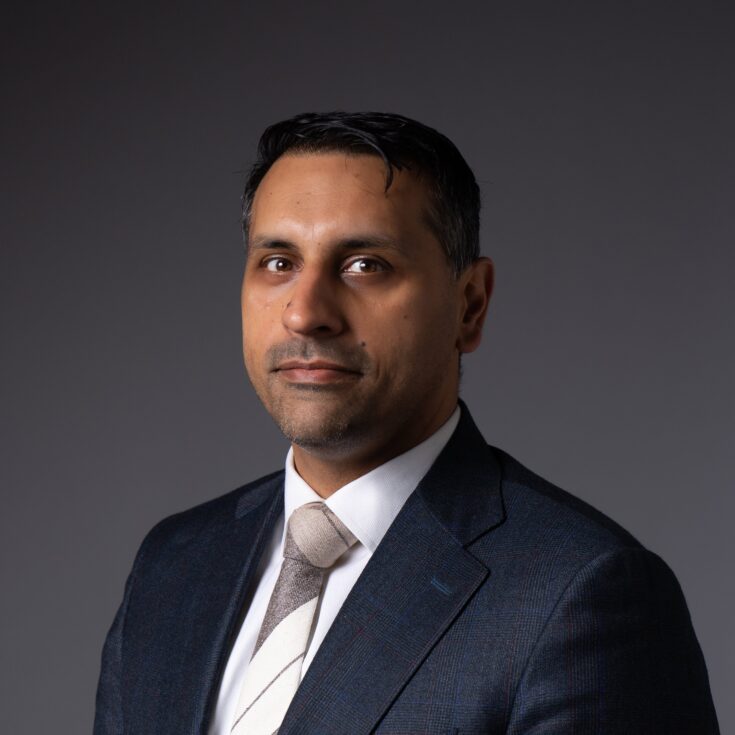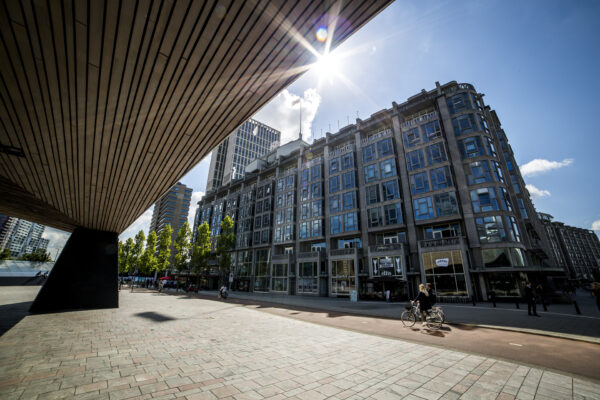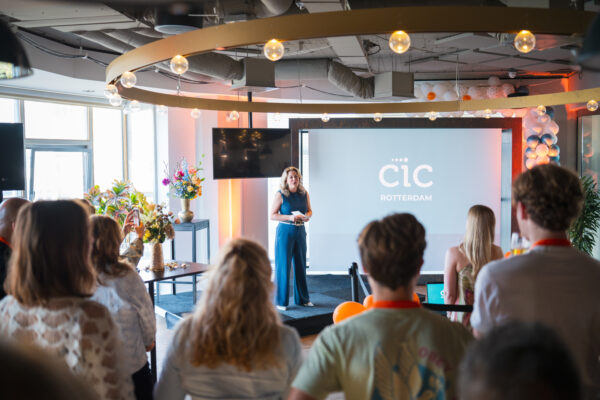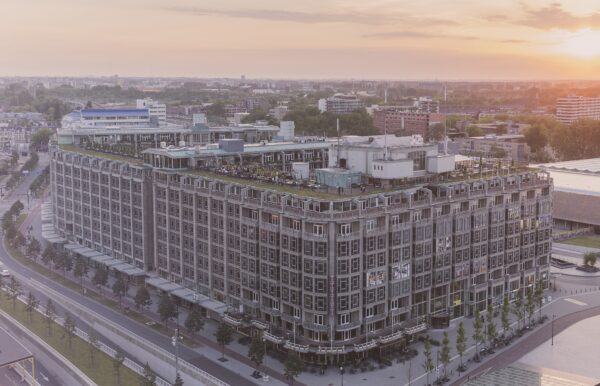In February 2021, two brothers from Rotterdam – Gurvinder Singh Chahal and Dharminder Singh Chahal – saw an extraordinary opportunity to restart stalled research of antibodies in the cancer field. It turned out that one of these antibodies has big potential to become an innovative new medication. After obtaining 17.5 million euros in seed capital from several Rotterdam based investors, the brothers were able to launch their company, Sairopa, and kick off their work. Though it was a comparatively small sum in the world of Biotech, these funds were enough to recruit a team of Dutch Biotech sector professionals with specialized backgrounds in preclinical research and human trials, among others. Moreover, most of the professionals on the team were familiar with these antibodies as they were originally developed in the Netherlands but were owned by an American company as we acquired this antibody portfolio.
To continue financing their research after the start-up phase as the funds would have dried up in less than two years, Gurvinder turned to the pharmaceutical world to see if there was interest from pharma companies to collaborate. Finally, after months of meetings and negotiations in the US market, the pharmaceutical company Exelixis agreed to take the plunge, with an option deal. “We eventually made a deal in which Exelixis could acquire one of the four antibodies after seeing clinical data in the future, paying us 40 million dollars for the option. Under the deal, we’ll remain the proprietor and developer of our company and the antibody. They’ll also pay us another 70 million dollars over the next two years to do the actual clinical research. This deal is obviously a fantastic result for Sairopa since we still need to prove that there is real potential of this antibody in cancer patients.’’
What sets this development apart in terms of potentially curing cancer?
“We started out with a set of four types of antibodies, three of which clearly targeted cancer. One of the four pretty quickly proved to be the most innovative antibody and the one that could likely make the difference for the overall pharma field. The first step is always to test it in rodents. After that, research progresses to monkeys, and if the results show no safety issues, you can start human trials.
To the question what sets our antibodies apart, we’ve got a variety of existing cancer treatments – so, chemotherapy, surgical removal and immunotherapy now as well. The simple explanation goes like this: you have cancer cells and you have the immune system. Normally, our body recognizes cells that don’t belong there and fights them, but cancer is a false disease that goes on evolving. Some cancer cells send a ‘don’t eat me’ signal to our immune cells, and that then gives a cancer cell more time to grow or replicate. Our antibody works by blocking this ‘don’t eat me’ signal so that the cancer cell is actually recognized and attacked by the immune system. We believe we have a best in class potential with our antibody based on the characteristic of our specific antibody.
Another big concern during development is that the side effects should be minimal. In our tests on monkeys we found there are very few side effects. Also we know that our antibody is build to work variety of human biological backgrounds and and both sexes. That makes it what’s called a pan-allelic antibody.”
How did Sairopa manage to raise so much funding in just a year and a half?
“Sairopa’s whole process was fairly unique, due to how fast we were able to move forward in finding an investor. That first investment of 17.5 million sounds like an astronomical amount, but in the Biotech sector it’s a small amount especially for a cancer therapeutic company. With this amount we could start and continue for 2 years, not longer. I’ve been to the United States, as it is still the largest market for Pharma, at least nine times in the past year visiting conventions, giving presentations for big pharmaceutical companies and recruiting potential partners. I had our first meeting with Exelixis in March 2022. It started with a Teams meeting in my attic office, then a face-to-face meeting at a conference in New Orleans and finally a convention in Chicago with their and our chief scientific officers. We felt that Exelixis was really interested and then two weeks later my brother and I flew out to San Diego to discuss a potential agreement over dinner. That resulted in the option deal which finally got the green light in November. It really is a fantastic deal: they’re pre-funding the clinical development based on specific milestones, and, if it shows results in patients, will acquire the antibody. For us, it’s amazing to be working with such a major pharma company and to be starting clinical trials.
Exelixis obviously extensively did their due dilligence before taking its decision and so saw for themselves that everything stacks up, including the science. They are convinced thatour drug is potentially best-in-class. Our antibody hasn`t been tested on humans yet, but we have high hopes for the results. Ultimately, our dream is that the medication really works. We’re excited about the next research phase, which will be treating 120 cancer patients in a global trial of our medication over the next two to three years.”
What is your vision on the future of biotech and life sciences in the Netherlands, and more specifically in Rotterdam?
“In my opinion, the Netherlands should be focusing particularly on initial research and development. We have incredible labs at several universities and a brilliant ecosystem, like Pivot Park in Oss and Leiden Bioscience park in close collaborations with medical universities. Our country has the knowledge and the capacity to set this up. Most Biotech companies do development and then sell or enter a partnership. The tricky part is raising the massive funds needed in this sector if you’re only working with Dutch investors even though we have some strong Venture Capital firms. It’s a sector fuelled by private capital. In Rotterdam, partnerships with life sciences industry could be significantly better, but we are talking with Mayor Aboutaleb about that. Bringing private capital and the city of Rotterdam together from an investment perspective would be a boost for the sector in our city.”
What does being based in this location, and in Rotterdam, mean for you?
We’re not a really small company any longer, but we’ve got our feet planted firmly on the ground. We’re from Rotterdam, after all. I hope we can make our city proud. It’s hugely important for us to remain based in this city. And CIC is a great place from which to operate, surrounded by such a large range of young and ambitious entrepreneurs.
Want to know more about the CIC Rotterdam community?
Written by: Céline Boute




